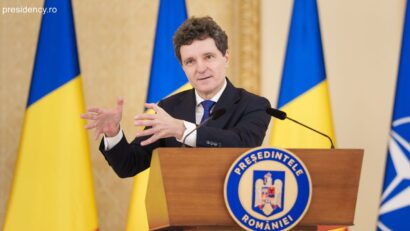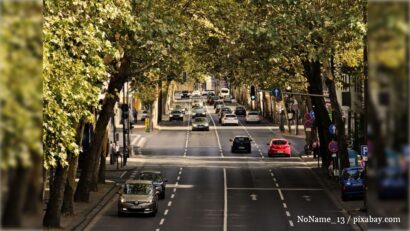French Report on Digital Interference
A French government body confirms information manipulation before the presidential elections in Romania

Bogdan Matei, 06.02.2025, 13:50
The political crisis in Bucharest, never seen before in the 35 years of post-communist democracy, has become a case study for foreign experts. The manipulation of information on social media, used in the first round of the presidential elections in Romania, can be repeated in any other country – warns the report drawn up by a French governmental institution, VIGINUM, quoted by the Radio Romania correspondent in Paris. The research conducted by this body, in charge with protection against foreign digital interference, indicates the existence of very sophisticated manoeuvres that would have disrupted the smooth running of the Romanian presidential election. These would consist in the mobilization of thousands of accounts, with the aim of artificially increasing the frequency of keywords associated with the independent candidate Călin Georgescu – accused by his political opponents of connections or at least affinities with Putinist Russia.
The recommendation algorithm of the Chinese network TikTok was manipulated, so that the respective posts appeared in the users’ news feeds, which led, in just two weeks, to the explosive growth of Gerogescu’s popularity. More than 100 TikTok influencers without particular political concerns and more than eight million active subscribers seem to have been recruited to participate, without realizing it, in a campaign designed to give visibility to the nationalist candidate.
The report adds that the phenomena observed were not limited to TikTok, as other modes of operation were identified on the platforms of the Meta group – Facebook and Instagram. After Georgia and the neighbouring Republic of Moldova (ex-Soviet, predominantly Romanian-speaking), Romania was the third European country affected, at the end of 2024, by large-scale manipulation of the electoral process – says VIGINUM, which specifies that, at this stage, the sponsor behind the pro-Georgescu campaign remains unknown. Countless unknowns persist in Bucharest as well.
Organized as scheduled, on November 24, 2024, the first round of the presidential elections was initially validated by the Constitutional Court. Later, based on the documents provided by the Supreme Council of National Defence (CSAT), the same Court invoked the interference of a so-called state actor and decided to cancel the entire process for the election of the country’s president. The contenders in the second round, scheduled for December 8, would’ve been Călin Georgescu and the USR leader (in opposition), the pro-European Elena Lasconi.
At the polling stations abroad, opened on December 6, tens of thousands of Romanians had already voted in the second round, until the CCR decided to cancel the elections. However, the Venice Commission has stated that such a decision should not be based exclusively on classified information, which does not guarantee the necessary transparency, but should precisely indicate the violations and the evidence of that. The members of the Commission, who are independent experts in constitutional law, also argue that proving violations of the law through online campaigns and social media is particularly difficult. (MI)






























